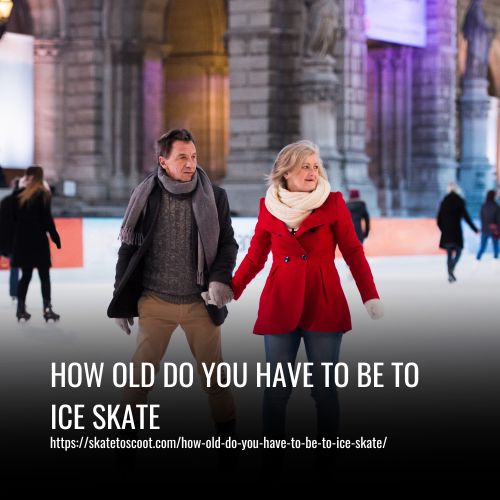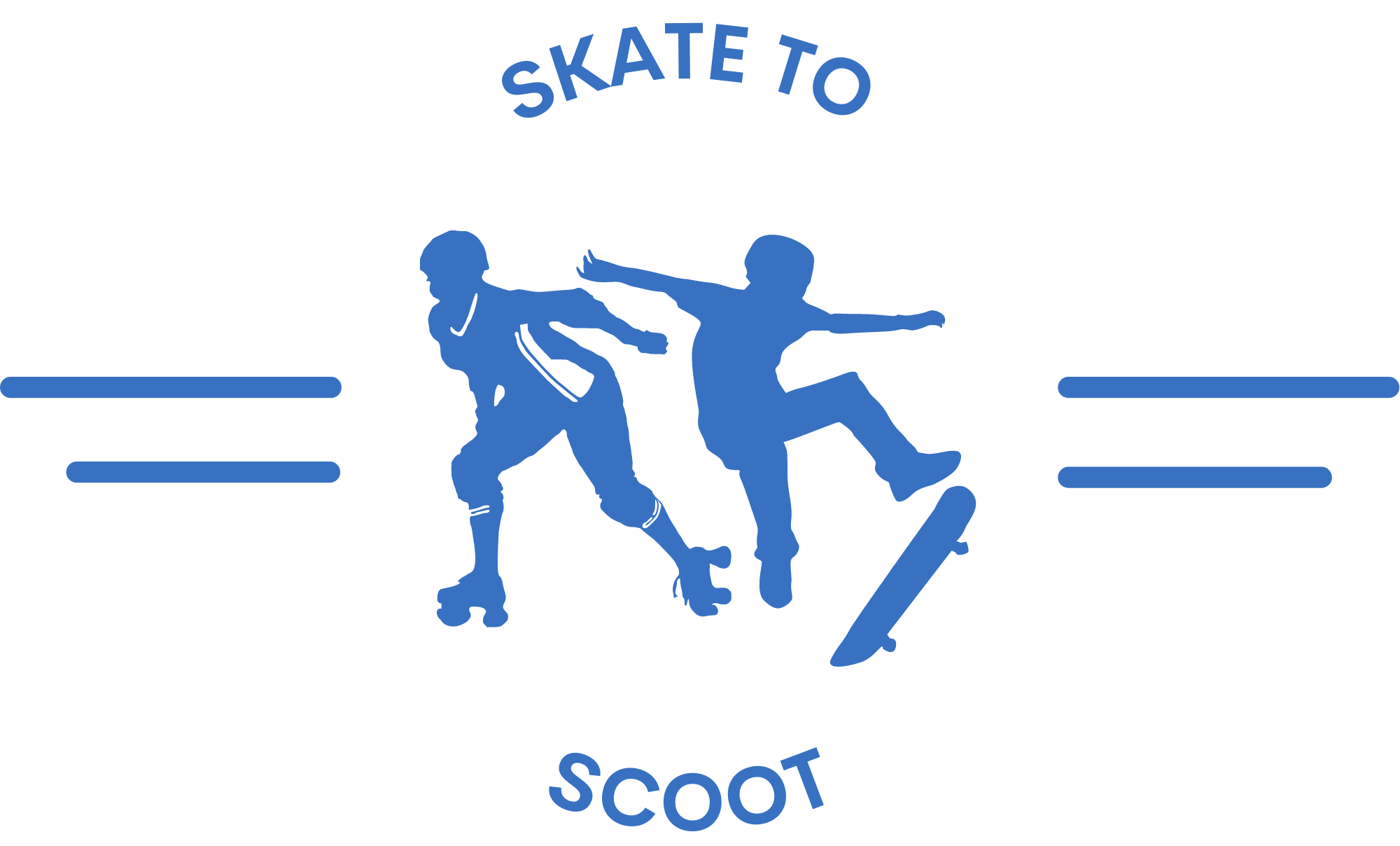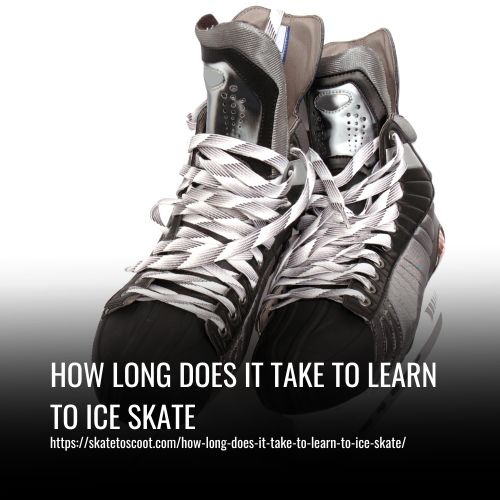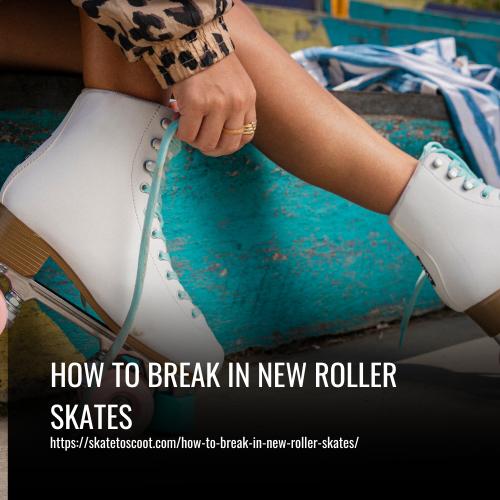As an Amazon Associate we earn from qualifying purchases.
Figuring out the best age for a child to start ice skating can be tricky. Some parents push their children too soon, while others want to wait until the child is old enough to understand and follow directions properly.
Ultimately, any child who is comfortable on the ice and shows interest in wanting to learn how to skate can begin skating between ages four and six. Parents should keep in mind however that it takes some kids longer than others to learn how to skate properly, so patience is key!
Safety should also be a top priority when it comes to ice skating; beginners should be given lessons in a safe environment with all necessary safety equipment. As their skills improve, they can graduate onto bigger rinks or outdoor ponds where they can practice more advanced maneuvers.
With time and practice, your kids will soon become skilled skaters and have fun while staying active at the same time!

Things to Consider Before Making a Decision
When it comes to deciding how old your child should be before they start ice skating, there are a few factors to consider.
1. Body Balance
Body balance is an important consideration when deciding to start ice skating. For small children, who may be just starting ice skating as young as 3 years old, balance and stability can usually be developed independently before trying different activities with the skates. This will give them a much better chance of having success when beginning to skate on their own.
For adults, body balance is still a major factor in the decision to start ice skating. People who are older may have difficulty with the physical demands of skating and should take this into consideration before committing to the sport. However, for those who are still in good physical condition, learning how to achieve balance and stability on ice skates will become easier over time.
2. No Severe Physical Disabilities
When deciding how old you should be for ice skating, it’s important to consider whether or not you have any severe physical disabilities affecting your lower limbs. That’s because standing on your feet is an essential part of ice skating—something that can be difficult if you are physically disabled.
Therefore, it’s recommended that individuals with physical disabilities affecting their lower limbs avoid ice skating unless they feel comfortable making the necessary adjustments to safely participate. Similarly, those without severe physical disabilities should feel safe and confident participating in the activity, knowing that they can easily stand and skate without issue.
3. Physical Strength and Muscle Endurance
Deciding when is the right time for your child to begin ice skating requires more than just age grouping. The reality is that in order to safely enjoy the sport, one needs a certain amount of physical strength and muscle endurance.
While three to six year olds may have some of these abilities, those engaging in more rigorous forms of ice skating such as speed or hockey will need higher levels of strength and endurance. Taking this into account is vital when deciding when your child is ready for ice skating.
4. Full Body Coordination and Flexibility
Full body coordination and flexibility are essential for ice skating. Having the correct posture with bent knees and shoulders over your hips helps keep you balanced on the ice. Your hands have to stay steady, meaning they shouldn’t be all over the place in the air. Additionally, your skates should be parallel to your knee and leg so that you don’t end up pronating while on the ice.
If a child or adult doesn’t have control and flexibility yet, then they may not be ready to start ice skating until they gain those skills. Mastering full-body coordination and flexibility can take time so it’s important to consider this before making any decisions about taking up the sport.
5. Emotional and Psychological Stability
Knowing whether or not you or your child is ready for ice skating takes more than just age. It’s important to consider emotional and psychological stability before setting foot on the rink. Without this, risk can be taken and safety is put in danger.
It’s best to ensure that a person of any age is emotionally and psychologically prepared before taking up ice skating. This means having the confidence needed to succeed and have fun, being able to believe that they are capable of doing things that require dedication, and feeling comfortable enough with themselves to take on challenges while having a good time doing them.
Make sure you or your kid has the emotional and psychological stability necessary for ice skating prior to giving it a shot!
Ice Skating Disciplines To Try Out
If you’re looking for an ice skating discipline to try out, then you’ll be happy to know that there are several choices! Figure skating is a stylish form of ice skating where jumps and dances are performed on a rink.
Ice hockey involves teams of six competing against each other with sticks to score goals. Speed skating requires contenders to compete in short and long tracks.
Recreational ice skating is more focused on pleasure and exercise benefits, while Bandy and Ringette involve contactless competition similar to hockey.
Barrel Jumping is another extreme discipline that tests the skater’s speed as they leap over multiple barrels. And finally, Ice Cross Downhill has competitors racing down a walled track for thrills and high speeds.
No matter what type of ice skating you’re interested in, there’s sure to be something here that will peak your interest – so go ahead and give them a try today!
What to Wear When Ice Skating
When it comes to ice skating, the right gear goes a long way in keeping you safe and warm. That’s why it’s important to know exactly what to wear when you are going out on the ice!
The first step is to make sure that you have protective gear such as helmets and good padding, this will help keep you safe from any unexpected falls.
You’ll then want to make sure that you are wearing long polyester pants and socks as these will help keep your legs warm and safe in case of a fall.
Make sure that don’t forget gloves and long-sleeved shirts as well – while they will help keep your hands warm they can also provide some extra protection in case of a tumble.
Next, add a neck scarf, light sweater or jacket, and knit hat – they will all provide extra warmth against the cold setting of an ice rink.
Finally, don’t forget your actual skates! It is important here to make sure that you have the right skates for your specific discipline with proper fitment – comfort goes a long way during any type of skating activity.
So remember what we’ve talked about here when considering what to wear for your next round of ice skating!
Kids Are Ready To Start Skating
When your kids are ready to start skating, you want to make sure they get off to a good start. Skating is a great activity for kids, not just for fun but also for exercise. It’s important to find a rink that is appropriate for your child’s skill levels in order to avoid injuries and ensure that your child progresses in their skating at their own pace.
There are different skating ages that vary by the level of difficulty, so it really depends on the skills of your child too. Enrolling them in lessons once they’re ready is essential as it will give them time to practice and hone their skills before moving on to more advanced tricks and jumps.
Skating isn’t just something you can enjoy when you’re young, it’s a lifelong hobby that can bring endless joy and fun. So once they’re ready, go ahead and let them take the plunge!
Parents Need To Be Patient
Parents need to be patient when it comes to teaching their kids how to ice skate. Learning the sport requires practice and can take some time before your child is ready. That being said, it’s important not to get discouraged or unenthused if the process doesn’t happen overnight.
It’s also important to find a pair of skates that will work best for your child’s size and style of skating. With all the different types available on the market, you should be able to find something suitable for their needs.
If you’re unsure about whether or not your child is prepared for full-on ice skating, try starting with some simple activities like inline hockey or sidewalk rollerblading first. This way, you can get a better sense of your child’s skill level before lacing up those skates!
It Takes Time For Children To Learn How To skate Properly
For children, it takes time for them to learn how to skate properly. Starting when they’re around 4 years old will allow the kid to get the most out of the experience. The only thing you need is patience since you’ll both be learning together and this is a great way to bond!
Ice skating is a great exercise that can help improve balance and coordination in young kids. It might take some time and there are sure to be a few bumps along the way, but keep at it – you won’t regret it! Remember to enjoy every moment on the ice rink with your kiddo as it’s sure to provide many good memories!
As a beginner, ensure you are in a secure spot when learning to skate
When beginning to learn how to skate, you want to make sure that your environment is secure and safe. Avoid going too fast on the ice or skating near ice rinks and poles, as these factors can increase the risk of falls and injury. Choosing an open area without obstacles or other hazards is a great way to practice safely while having fun.
Before hitting the ice, make sure you have quality gear like sturdy shoes specifically designed for skating. It’s also a good idea to go with friends who have more experience so they can look out for potentially dangerous situations and help you if you need it. When starting out, try following some of our beginner-friendly tips for a smoother start!
Skating provides great physical and mental benefits – but safety should be your priority when learning the basics. As long as you’re in a secure spot with supportive gear and knowledgeable companions, there’s no reason not to give it a go.
Can A 2 Year Old Skate?
Can a 2 year old skate? The answer is yes – as long as they are wearing protective gear and watching closely, it’s perfectly safe for a 2 year old to enjoy some skating fun. However, it’s important to make sure the skating surface is safe before you let your toddler go out there.
It’s also essential to make sure that your child is physically up to the task; most 2 year olds should be able to start beginner-level activities, but some may need more help than others depending on their strength and size.
For added safety, it’s always wise for an adult to be present when the dog-toddler duo hits the ice or skateboard or rollerblade. If you’re worried about your little one’s safety or simply want peace of mind you can use a monitoring system readily available online nowadays.
Finally, don’t forget that skating should be enjoyed responsibly – don’t push them too hard and always caution them against making any sudden movements while enjoying their sports!
What Age Is Too Late To Start Figure Skating?
The age at which it’s too late to start figure skating is not set in stone. Skaters have been successful into their 70s and even 80s, while some have retired earlier than that. It’s never too late to try out figure skating, regardless of your age.
That said, teenagers are the perfect age group to take up this sport as they already possess physical agility and lots of energy. As they get older, their skillset will improve with more practice – something adult beginners would benefit from compared to those who did not start in their teenage years.
In the end, there is no right age when it comes to figuring out skating – there will always be a way for you to learn the basics and eventually become an excellent skater!
FAQs
The timeframe differs depending on the skater’s aspiration. If you wish to skate only for pleasure, it can necessitate 4-10 classes to master the rudiments. Must one decides to grow beyond the essentials, it may require a considerable length of time.
No ideal age to learn ice skating. Group lessons require children to be at least 3 years old. Can begin in private lessons if they can walk and are potty trained. Can try again in a few weeks/months if it’s difficult. Ice skating helps children with motor skills development.
Good, fundamental, efficient skating skills with proper technique are necessary. Skill progression is used by good coaches to achieve athletic development and a skater’s success. Higher-level elements comprise the building blocks of lower levels. Gaps in skills become more apparent when trying to execute complicated elements. Introduce appropriate skills when mastering the fundamentals.
More to be a coach than just knowing how to skate. Must know how to teach skating effectively and efficiently. Skaters interested in becoming coaches should discuss this with their coach and the skating director. Group lesson assistance is usually the first step.
Conclusion:
Ice skating is an activity that can bring enjoyment to anyone regardless of age. As long as the proper safety measures are followed, even those as young as three can safely get on the ice.
Furthermore, while some may think that they’re too old to start learning this skill, with a little bit of patience and perseverance, anyone can learn how to skate no matter their age.
Amazon and the Amazon logo are trademarks of Amazon.com, Inc, or its affiliates.



